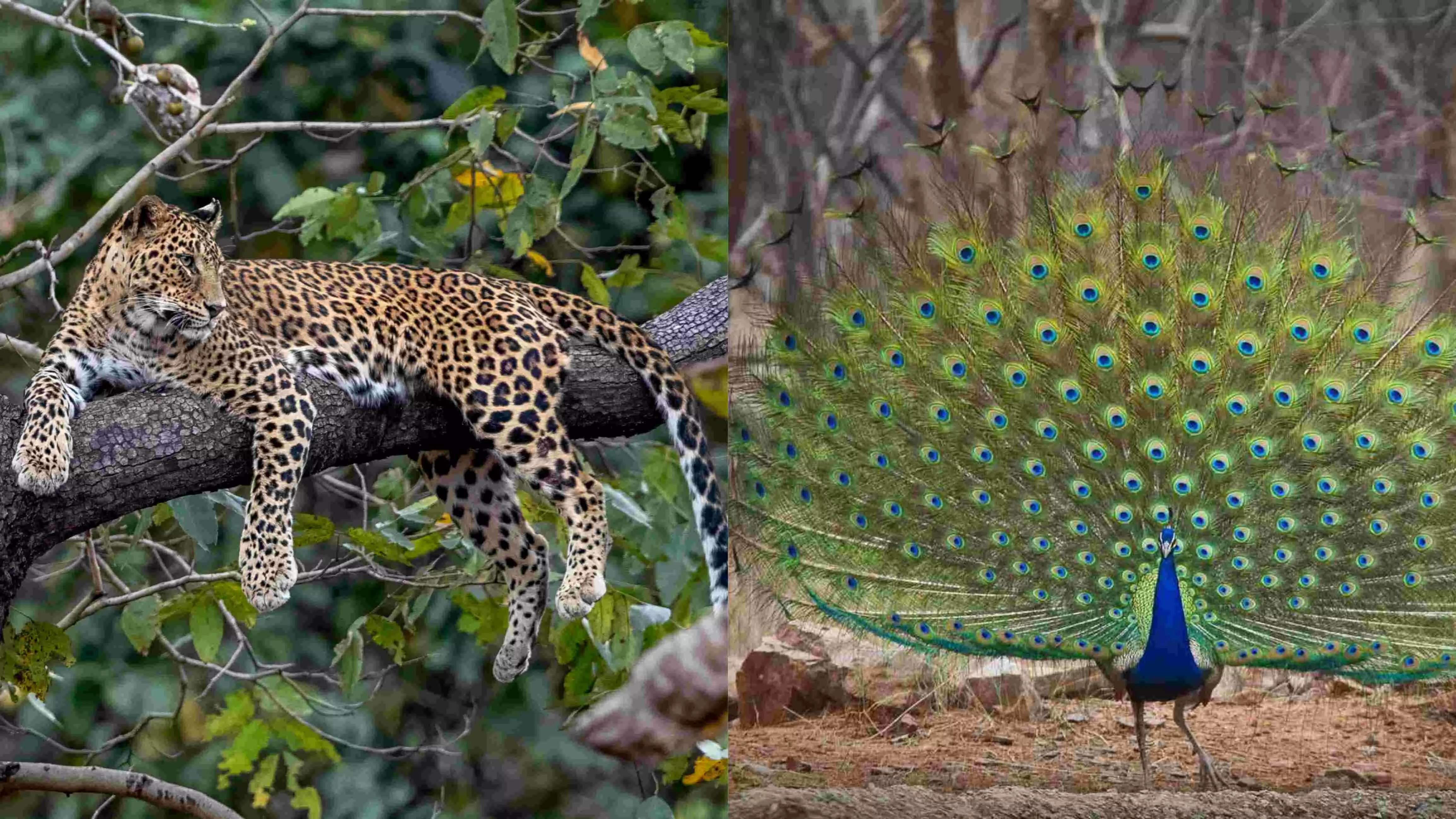From peacock feathers to leopard skins: 58 illegal wildlife trade, trafficking reported in 2023-24
The illegal trade in peacock feathers and live birds persists due to international demand
By Sri Lakshmi Muttevi
From peacock feathers to leopard skin, Indian wildlife threatened by trafficking rings habitat destruction
New Delhi: India boasts a rich diversity of wildlife, with the Indian Leopard (Panthera pardus fusca) standing out as one of the country’s most iconic yet elusive big cats. These leopards inhabit varied landscapes, ranging from the dense forests of the Western Ghats to the rugged Himalayan terrain.
Unfortunately, their survival is increasingly threatened by habitat loss, human-wildlife conflict, and illegal wildlife trade. Listed under Schedule I of the Wildlife (Protection) Act, 1972, the Indian Leopard is accorded the highest legal protection in India.
According to the 2024 National Control Bureau (NCB) report, a total of 58 wildlife cases were registered by CBIC during 2023-24, leading to 55 arrests.
Cases: Visakhapatnam, March 12, 2024: In a covert operation, DRI apprehended three wildlife traffickers at a hotel after they attempted to sell leopard skin. The seized skin was handed over to forest officials.
Amravati, January 6, 2024: Acting on precise intelligence, DRI intercepted a group of poachers attempting to deliver a leopard skin. Three individuals were arrested, and the skin was handed over to the authorities.
Srinagar, August 11-12, 2023: In a high-risk operation, DRI seized seven leopard skins in total, arresting eight individuals involved in the illegal trade.
Pangolins: The Most Trafficked Mammal
Pangolins, known for their unique keratin scales, play a critical role in ecosystems by controlling insect populations. Found in Asia and Africa, these creatures are among the most trafficked animals globally due to the demand for their scales in traditional medicine and luxury markets.
Their population has dwindled drastically, with an estimated 1 million pangolins poached over the past decade. This crisis highlights the urgent need for concerted efforts to combat illegal trade and ensure their survival.
Peacock Feathers: A Symbol at Risk
Peacocks, celebrated for their vibrant plumage and cultural significance, are protected under Schedule I of the Wildlife (Protection) Act, 1972. Despite legal protections, the illegal trade in peacock feathers and live birds persists due to international demand.
Nhava Sheva Port, February 2024: DRI intercepted a shipment deliberately wrongly declared as ‘coir mats’, seizing 28.17 lakh peacock tail feathers and 16,000 feather stems intended for illegal export to China. The exporter was arrested.
Patna Junction, 2023: Acting on a tip-off, authorities seized seven live baby peacocks from an individual's baggage, later handing them over to the Forest Department.
Indian Tent Turtles: A Fragile Species
The Indian Tent Turtle (Pangshura tentoria), native to India’s freshwater ecosystems, plays a vital role in maintaining aquatic health. However, increasing demand in Southeast Asia for exotic pets and traditional medicine has led to their illegal trafficking.
DRI has been actively combating this trade, conducting operations across multiple states to rescue thousands of live turtles. Once confiscated, the turtles are rehabilitated and released into their natural habitats.
Elephant Tusks: The Ivory Trade Threat
The illegal trade in ivory continues to endanger elephant populations globally. In India, the Asiatic Elephant is protected under Schedule I of the Wildlife (Protection) Act, 1972, yet poaching syndicates exploit sophisticated networks to smuggle tusks into international markets.
New Jalpaiguri, December 9, 2023: Acting on intelligence, DRI intercepted two smugglers travelling on the Dibrugarh-New Delhi Rajdhani Express. Officers seized three pieces of elephant tusks weighing 7.32 kg, intended for trafficking into Nepal.